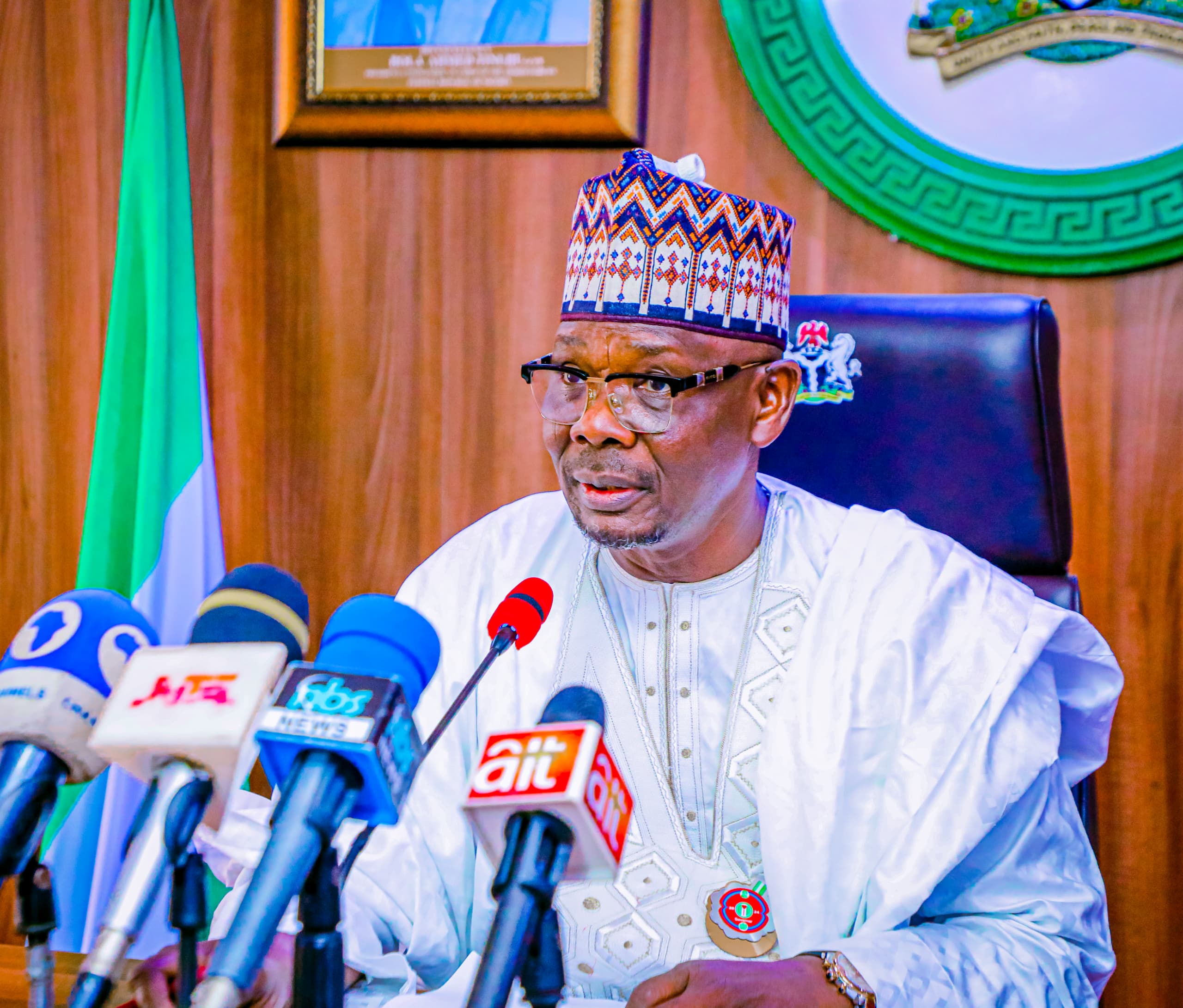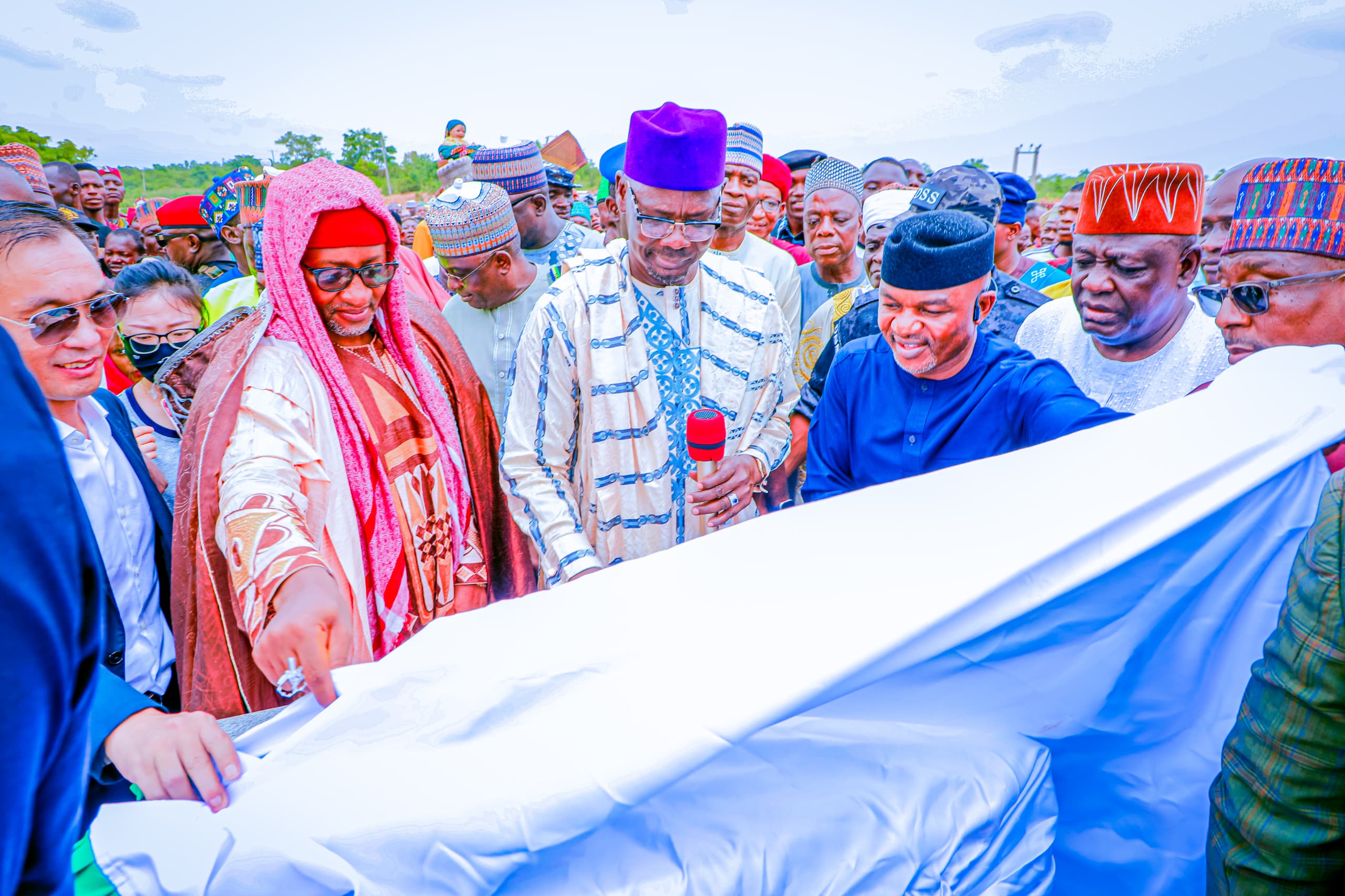By Ali Abare
Remember Newton’s third law taught in elementary physics? This law simply states that for every action there is an equal and opposite reaction. In Nasarawa State however, under the leadership of Governor Abdullahi Sule, this time tested law is being reviewed.
Indeed, it is glaring to any discerning onlooker that presently in Nasarawa State, for every action, there is a bigger and positive reaction. All thanks to the political will and commitment by the All Progressives Congress (APC) government to make the difference.
After criss-crossing the nooks and crannies of the state prior to his election in 2019, where Governor Sule experienced first hand the deplorable nature of especially rural roads spanning the length and breath of the state, he vowed to open up rural communities with a network of roads.
Good roads in rural communities are vital to the growth of the agriculture sector and its contribution to the economies of especially an agrarian state like Nasarawa. This is because road transportation is the major means of moving people (including farm workers), farm inputs and implements to and from the farms.
Agricultural produce are also required to be transported to available markets within and outside the state.
Governor Sule discovered that huge man-hours were wasted negotiating bumpy, potholes ridden ribbon of erosion-swept stretches of roads mostly around rural communities where the bulk of the population resides.
That was the action which necessarily resulted into a bigger and positive reaction from the governor.
Since coming onboard therefore, the administration has keyed into sustainable development strategy.and has not relented in its effort to better the lives of rural dwellers across the state, through deliberate policy thrust and initiatives, aimed at bringing succour and hope to the people at the grassroots, as well as rejuvenating economic activities of rural farmers and dwellers.
Realising the need to spread development across every nook and cranny of the state, the Governor Sule administration, embarked on multifaceted approach towards alleviating the plight of the majority of the population living in rural communities.
First, Governor Sule created the Nasarawa State Bureau for Rural Development, charged with enhancing the livelihoods of rural dwellers, through the creation of conducive environment for economic activities at the grassroots.
The bureau was purposely established to takeover the responsibilities of the then taskforce handling the construction and maintenance of rural feeder roads across the state. Other responsibilities of the bureau include managing all rural roads, electricity supply, as well as ensuring supply of water to rural areas across the state.
The bureau is also charged with enhancing the livelihoods of rural dwellers, through the creation of conducive environment for economic activities at the grassroots.
So far, the bureau has proposed to construct several hundreds kilometres of rural roads across the state, as disclosed by the Director General of the agency, Mustapha Yahuza Musa II.
The director general identified three major ongoing projects undertaken by the bureau, namely Keana/Abuni, in Awe Local Government, 27km, Kofan Gwari/Bakin Ayeni, in Kokona, 15km and Andaha/Rinze, 17km in Akwanga.
Some of the roads already completed by the bureau include Shabu/Doka/Anigba/Alakiyo, 10km, Agwade/Shepe/Atabala/Obi, 21km, Kanje/Abuni, 27. 9km, Kagbu/Atsoko/Kagbu Wana, 6km, Masaka/Luvu, 5km, Mama/Farin Ruwa, 16km, Nasarawa/Ara, 14, Ribi/Jangwa, 12km, Assakio/Obi, 27, Angoro Junction/Bassa, 54km, Gudi/Anguwan Dorawa, 1km, Baure Grazing Reserve in Awe, 19km.
Others are Akurba Power Substation, 2.2km, Sabon Garin Salawo/Tudun Wada in Keffi, 3km, Kaibo Fulani-Kaibo Mada, 3km and Keana-Abuni, 27.9km.
Also, the Kofan Gwari/Bakin Ayeni/Amba, 16. 9km, Rinze/Ngare/Ancho/Ancho Babba/Andaha, 13. 4km and Alushi/Wakama, 5km are presently ongoing.
Another approach taken by the Governor Sule administration aimed at bringing sucour to the rural communities through road construction is through the collaboration and partnership with the Federal Government, where he flagged off the construction of additional 966km rural roads and project under the Federal Rural Access and Agricultural Marketing Project (RAAMP), with the 12km Rinze-Mintibi Madaki road in Akwanga Local Government Area as pilot project.
The RAAMP is aimed at providing access roads to rural farmers and ensuring the provision of market infrastructural facilities, as well as enhancing financial and technical intervention to farmers, which will also boost agricultural production for value chain addition.
These projects started midway in 2022 and several of them have since been completed.
Furthermore, the present administration embarked on a profound approach to enhance economic activities in rural communities by opening up 45 additional rural roads through the World-Bank-funded Nigeria COVID-19 Action Recovery and Economic Stimulus (NG-CARES) programme.
Recall that Nasarawa emerged top in the implementation of the NG-CARES programme in the country, following which the state 10 percent of the entire grant disbursed across the country, amounting to over N13bn.
Findings showed that while the roads under the NG-CARES programme are spread across the 13 local government areas, over one hundred thousand people are targeted to benefit from the initiative.
Under the NG-CARES programme, some of the rural roads already executed include the 11 kilometer Bukan Fadama Agyaragu road, as well as the five kilometer Kwandare-Awuma road in Lafia Local Government Area.
Also, renovation and completion of a block of 3 classrooms, drilling of one solar borehole in Ehumu Alizaga, as well as renovation of examination hall and drilling of one solar borehole in Wana Awonge, all in Nasarawa Eggon Local Government Area.
Furthermore, some of the micro projects undertaken under the World Bank-funded programme include the provision of school furniture and drilling of three solar-powered boreholes in Gudi, renovation of primary healthcare center and provision of equipment, as well as drilling of one solar borehole in Ancho, all in Akwanga Local Government Area.
In summary, as part of the programme, 76 classrooms were built or rehabilitated, with 89 primary healthcare facilities were built or rehabilitated and a total of 73 solar-powered boreholes constructed across the 13 local government areas of the state.
That is not all. There are other forms of interventions in the education sector where the NG-CARES reconstructed a block of three classrooms in Lafia South first initiated in 1975 but later abandoned midway into the project.
The intervention was also extended to agriculture, where over 11, 000 farmers benefitted from the project’s agriculture development initiative even as 6,000 less privileged persons receive N10,000 monthly under conditional cash transfer to improve their livelihood.
Indeed, through this multidimensional approach, the Governor Sule administration is not only rewriting history but also bringing much desired development to rural communities for enhanced socio-economic activities.
Abare is the Special Assistant on Media to the Nasarawa State Governor.




